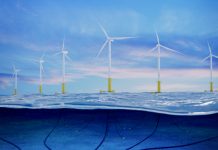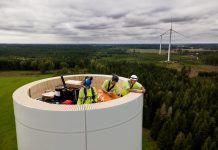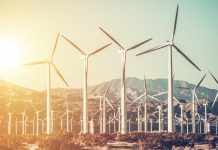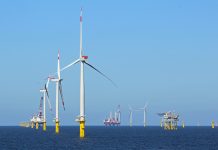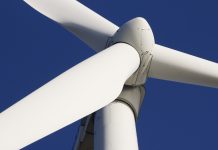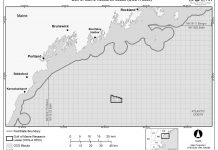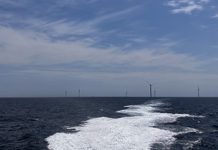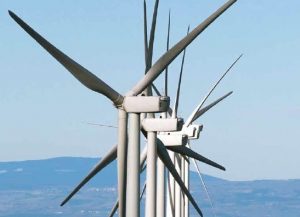
The Bureau of Ocean Energy Management (BOEM) announced the availability of its Final Environmental Assessment (Final EA) of an offshore wind research lease in the Gulf of Maine.
“Floating wind technology can make offshore wind a reality in the Gulf of Maine,” said Elizabeth Klein, BOEM director. “BOEM will continue to work in partnership with the state of Maine as we move forward to facilitate the responsible development of offshore wind in this region, as well as the deployment of floating offshore wind technology nationwide.”
In October 2021, the state of Maine requested a research lease for the purpose of researching floating offshore wind energy technology and its deployment. The research site lies 28 nautical miles off the coast of Maine, roughly southeast of Portland, and if developed would comprise up to 12 floating offshore wind turbines capable of generating up to 144 megawatts of renewable energy.
After considering alternatives described and analyzed in the Final EA, as well as comments from the public and cooperating and consulting agencies on the Draft EA, BOEM finds that the issuance of a wind energy research lease within the proposed lease area offshore Maine, and related site characterization and site assessment activities, would have no significant impact on the environment. As a result, under the National Environmental Policy Act, BOEM is not required to prepare an Environmental Impact Statement in order to issue a wind energy research lease offshore Maine.
Upon completion of the Final EA and finding of no significant impacts, BOEM offered the research lease to the State of Maine on May 24.
BOEM is exploring additional opportunities for offshore wind energy development in the U.S., including in the Gulf of Maine and the U.S. Central Atlantic coast. The Department also continues to take steps to evolve its approach to offshore wind to drive towards union-built projects and a domestic-based supply chain.
MORE INFO www.boem.gov



